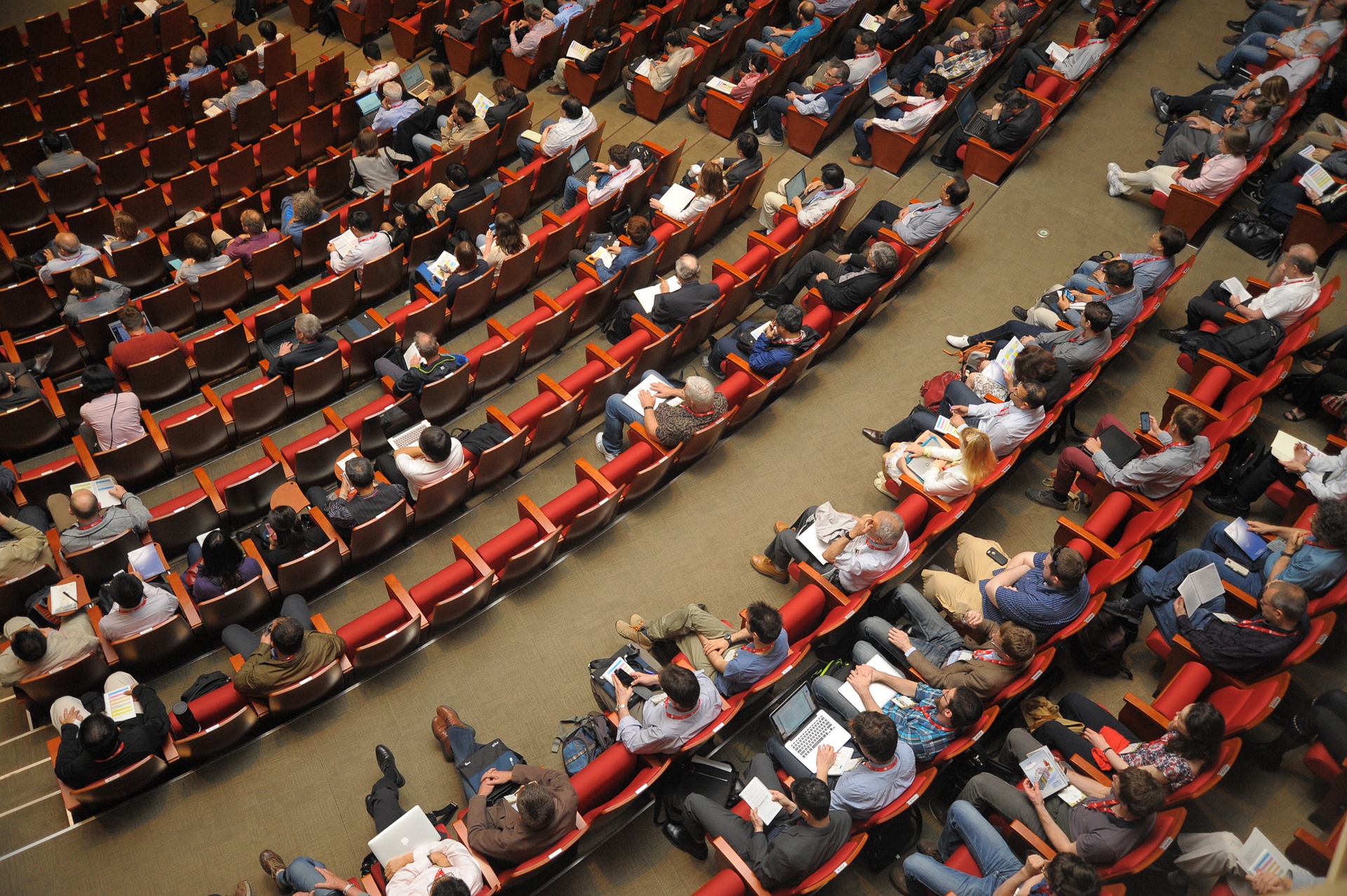by Leonie Schittenhelm

Scientific conferences are really cool. They just are. I mean, a ton of people interested in the same stuff you’re interested in coming together to talk about said stuff all day long? And you get snacks in between? Sign me up. But scientific conferences are also fraught with feelings of stress and insecurity – What if everyone thinks that question I want to ask is really dumb? What if my poster doesn’t measure up to what everyone else shows? How do I network with that one expert in my field, when I’m pretty sure I’ll stumble over my words because of how in awe I’m of her work? These are all hard questions.
I’m going to be really honest with you people here: I definitely did not ace my first conference. Or my second for that matter. I definitely had a problem with mostly talking to people I already knew. And I was most definitely too timid to ask a question while leaders in their fields were sitting all around me. But how do you get over that kind of stuff? And how do you ace your first (or second or fifth) conference? Here some suggestions, tested and approved by PhD students older and wiser than me. But whether you are an undergraduate student just looking to have a first whiff of the world of scientific conferences or an experienced Postdoc, conferences should be about learning new things from a variety of people and in turn let them learn from you. And eat copious amounts of snacks provided of course.
- Talk to people – I personally hate the word networking, but forcing yourself out of your comfort zone and chatting to a ton of new people can be really beneficial for your science. But collaborations and idea sharing aside, you shouldn’t only talk to people that you think will be somehow “useful” to you in the future. Sometimes it’s just a nice chat about the weather with a PhD student from across the country or asking one of the sponsors about their products that can make all the difference.
- Get active – A great way to speak to a lot of people is to volunteer some of your time at the conference to help out. Offering to be the mike runner during question time or helping to set up the presentation before the session might not only ingratiate you with the conference organisers – and potentially even shave off a couple of dollars of your registration fee – it also gives you great opportunity to chat with the speakers and other conference participants.
- Make sure you do your reading – Especially in bigger conferences, several sessions run at the same time, leaving you with the responsibility to make an informed decision as to which one will be the most interesting to you. Plus, by reading up a bit on the science of the session you like the most you will benefit from the little boost in background knowledge and can hit the ground running. And if you really want to talk to that one person specifically, google them and check if they published anything recently so you can chat to them about it.
- Review your notes – This is especially important if your hand-writing skills are as scraggly as mine. Reviewing your notes from the talks will bring back what you thought was so interesting about them in the first place and make sure you can go back to these records even in a year’s time when something clicks into place for you.
Caught the conference bug but don’t know where to start? Why don’t you sign up to Newcastle’s very own NEPG 2018 (North Eastern Postgraduate Conference) and check it out for yourself – it hits off on the 9th of November, but online registration is now open!